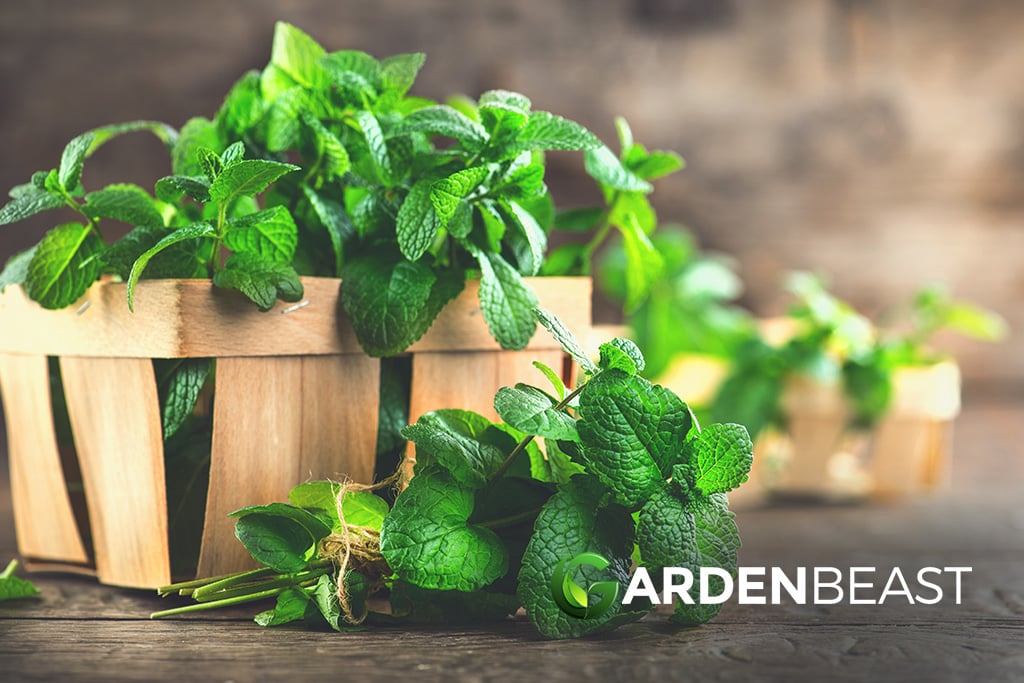No matter where in the world you live, chances are you will come across a spider or two in your home. Although some people keep exotic spiders as pets, the majority of homeowners view spiders as no more than pests. Most common house spiders are not harmful, but their constant web building can create an additional chore on cleaning days. Other spiders however are more nefarious and cause serious harm or even death if they happen to try to use you or a family member as a snack.
Aside from the obvious, humans, in general, have a natural aversion to spiders. There are several ways to get rid of spiders that are already in your home such as through the use of insecticides. Although insecticides will do the job, they contain harsh chemicals that can have long term negative effects on human health.
Thankfully, some alternatives are better for our health and the environment. Using natural methods to repel spiders will keep them from taking up residence in your home, to begin with. We have put together a list of attractive and effective plants in repelling spiders.
Marigold Flowering Plants
Marigolds are beautiful plants to have in your garden, and they are also very fragrant. The unique scent of this attractive plant will keep spiders, mosquitoes, lice, and other insects at bay. You can plant them in your garden, at the edge of your patio, or even keep them in containers inside of your home. In addition to adding a touch of color, this helpful plant will also serve as an eco-friendly insect control.

Eucalyptus Leaves
Eucalyptus leaves are very fragrant and work as an effective natural insecticide. The leaves banish spiders and mosquitoes when burned. Simply roll up the leaves and burn the ends until a nice waft of smoke is generated. Spread the vapors around the house to get rid of unwanted critters all over your home.
You can also toss a few leaves in your fireplace if you happen to have one. As a bonus, you can also boil Eucalyptus leaves to get rid of unsavory odors in your home. Dwarf Eucalyptus trees are available that you can plant in your yard or large pots. They are generally very tolerant of most climates and caring for them is very easy.
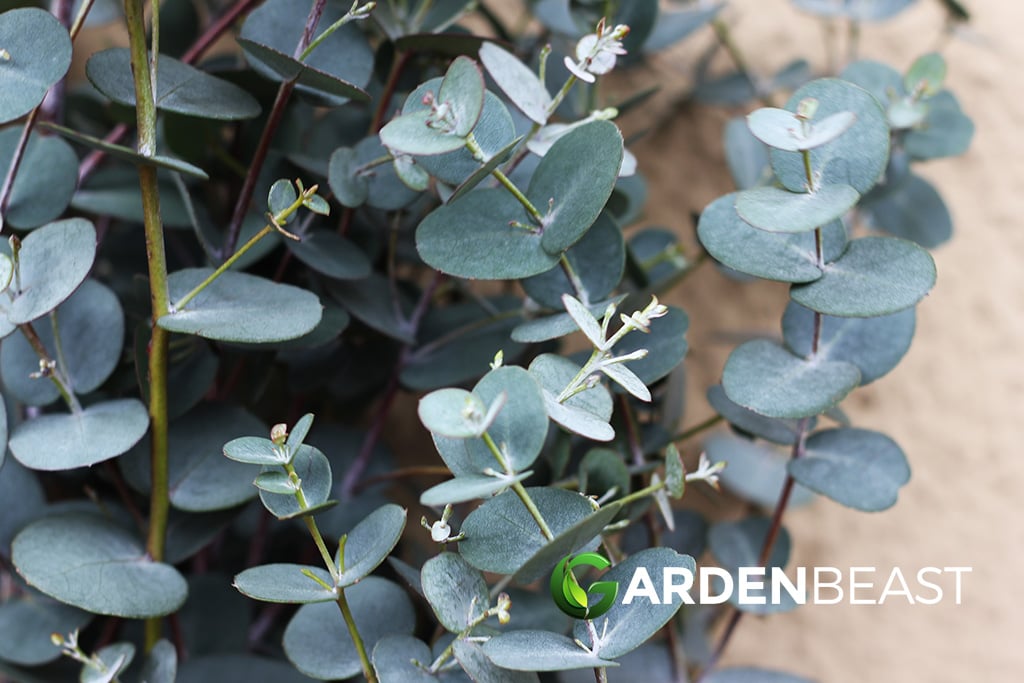
Lemon Verbena Plants
If you are looking for an attractive plant to add to your outdoor garden, picking one that can do double duty is a good option. The Lemon verbena has a very strong scent that is emitted when the leaves are bruised.
The pointed glossy leaves have a rough texture and double as a natural spider and insect repellent. When mature, the Lemon verbena can reach heights of up to nine feet tall making it a great option to edge the borders of your garden or property. It is a perennial and also serves a third purpose, edible flavoring.

Dill Plants
Dill can be quite flavorful when added to your meals, but did you know it is also an effective spider deterrent? As a member of the celery family, it has a natural ability to repel spiders and other bugs from the immediate vicinity of where it has been planted.
Consider keeping this plant in pots on your windowsills, in your kitchen, at various points in your garden, or even around the edges of your property. It is easy to grow and gets along well with other plants which makes it the perfect companion and insect deterrent. As a bonus, you will always have a fresh garnish to take your dishes to the next level in flavor.
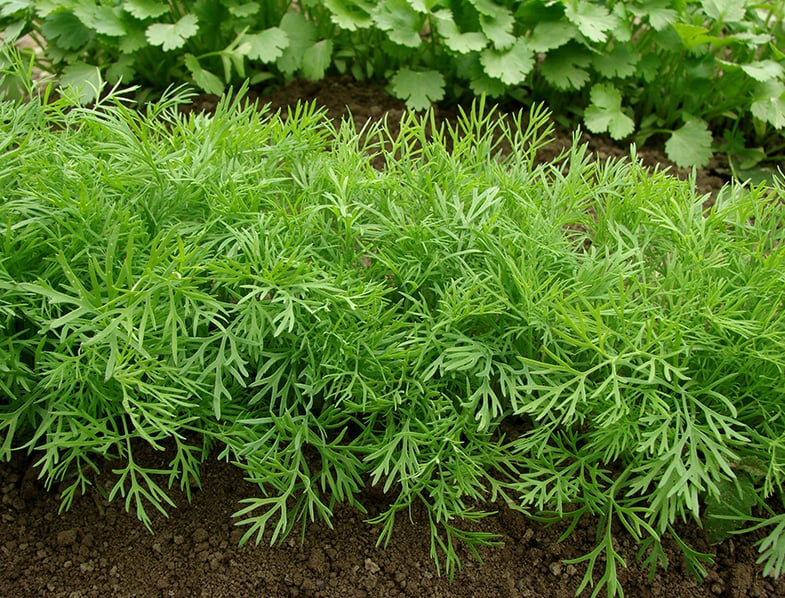
Lavender
There are plenty of fragrant plants that you can add to your garden, while some may attract certain insects such as bees, others can repel unwanted visitors. Lavender plants offer a host of benefits including being a natural spider repellent. Their strong and distinct odor is too strong for spiders to tolerate which will generally send the scampering in the opposite direction.
They also have an attractive look that can add character and charm to your home or garden. Many companies use lavender in their air fresheners due to the strong power of the fragrance. Instead of relying on the store-bought stuff, you can grow your own. They thrive in areas that get a lot of sun in addition to areas that have a lot of space for them to grow. You can plant lavender all-around your property or keep some in pots around your home.
If you are feeling creative, you can also use oil extract from your plants to serve as an insect deterrent in other parts of your home where plants won’t grow. The oil extract is also skin-safe which makes it perfect for a springtime perfume cum natural insecticide.
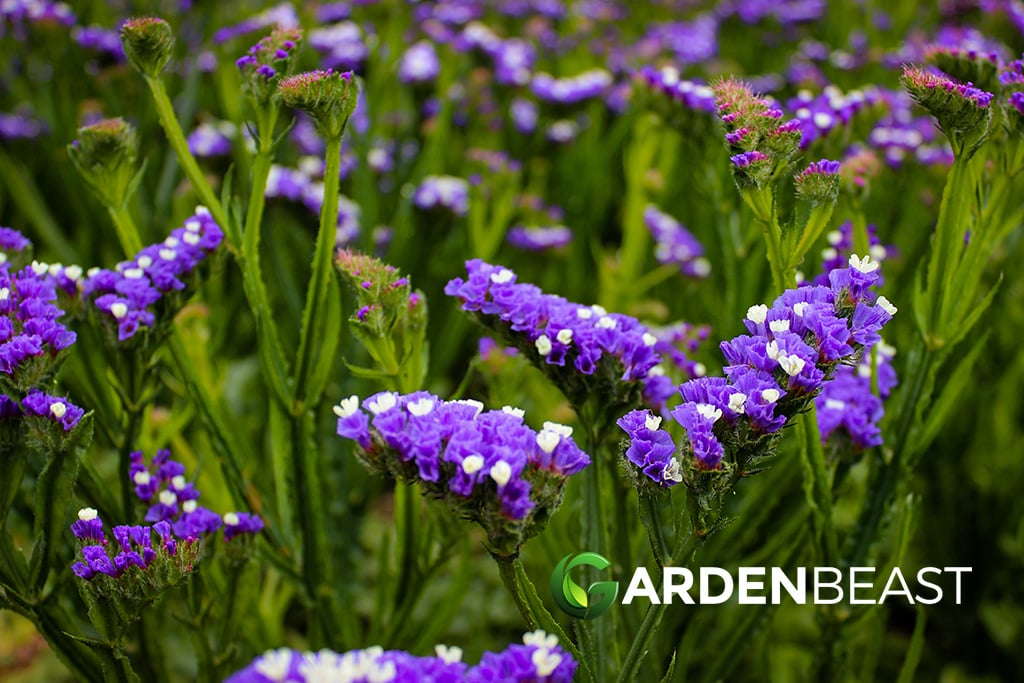
Citrus Plants
No matter which climate you happen to live in, citrus trees can make a great addition to your property. You can plant lemons, oranges, grapefruit tangerines, or even kumquat trees in your yard to serve as fruit providers and a natural insect repellent. Spiders and many other insects are unable to tolerate the smell of citrus which makes this the perfect type of plant to use as a deterrent.
If you don’t have a lot of space outside of your home, consider planting dwarf varieties to keep on your porch or even inside of your home. You can also use citrus peels to rub around the baseboards of your home and windowsills to deter spiders and other bugs from crossing the threshold.

Basil Plants
Basil may be the last thing on your mind when you think about spiders, but this fragrant herb is actually quite helpful. You can plant it in pots and place it in sunny windows to help banish not only spiders but other pests as well. In addition to being a natural pest repellent, basil has both culinary and medicinal properties. You can even make a mobile repellent out of basil extract and vodka.
Basil is harmless for humans but very irritating to spiders. Basil grows well both indoors in pots or outdoors planted in the earth. Just make sure that your basil plants get plenty of moisture and sunlight every day for proper development.

Lemon Balm
We have mentioned citrus a few times and for good reason, spiders simply can’t tolerate the smell. Lemon balm plants are most often seen as herbal tea, but it is also a strong and effective natural insect repellent.
The strong smell sends flies, ants, and other insects in the other direction, and hopefully away from your home. The double advantage of lemon balm is that it gets rid of the natural food sources for spiders which removes all the attractiveness of living in your home.
Growing this plant is easy, all you need is well-draining soil and a moderate amount of light. Just remember to nip the buds when they blossom as it will cause the plant to become ineffective as an insect repellent.
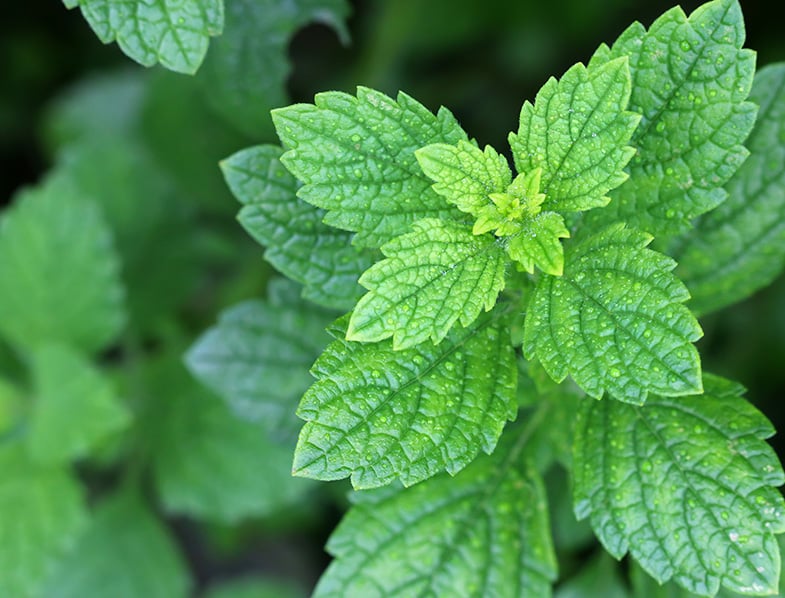
Lemon Grass/ Citronella
The lemongrass plant is an effective repellent for mosquitoes and spiders alike, You can concentrate the oil from the lemongrass plant and spray it around your house or you can place pots of the plant in key areas of your home.
The leaves of the plant and the acid in the sap generates a pungent smell that is attractive to humans, but irritating to spiders and other insects. It is not very cold friendly, so consider using the lemongrass plant in the warmer months and other spider repelling plants during the winter.

Mint Plants
Mint plants are a great option for those who want to get rid of spiders and spice their dishes at the same time. This fragrant plant is offensive to spiders and will send them packing in a jiffy. It is important to keep mint houses in pots because it grows prolifically and is an invasive plant.
It can quickly overtake your garden crowding out other plants in your garden. The great thing is that it grows so well you can house it in several small pots and place them all over your home. Not only will it chase off insects, but it will also give your home a pleasant scent.
